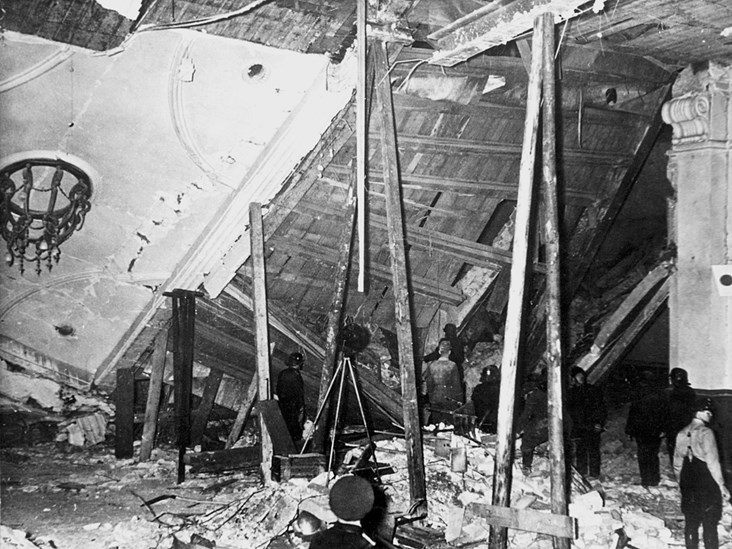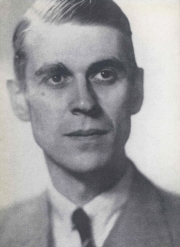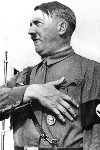I Was There! - The Fuehrer Had Just Left Us When...
The War Illustrated, Volume 1, No. 12, Page 379, December 2, 1939.
Early in the morning of Friday, November 10, a few hours after the explosion in the Buergerbrau keller at Munich, what purported to be an eye-witness account of the incident was broadcast from all the German wireless stations.
Opening his broadcast, the announcer declared that the microphone was standing inside the shattered beer-cellar, on the very spot where Hitler had stood to make his speech twenty minutes before the "infernal machine" went off.
The speaker was said to be a "member of the Nazi Old Guard" who had been present at the reunion.
"About 100 of the Old Guard", he said, "were in the room, and I myself was about a yard away from the door. Suddenly there was a flash overhead and a sudden pressure pushed me out of the door. Almost immediately afterwards came a thundering sound, and then everything was over before we could think what had happened."
"The air was so full of dust we could neither see nor breathe. We held our handkerchiefs over our mouths and got into fresh air. When the dust settled, we went back and found that the ceiling had fallen in."
"There were about 50 of the Old Guard in the hall uninjured and we set about rescue work. It was dangerous work because at any moment more of the ceiling might have fallen in. We worked for some time getting out injured and dead."
He then explained that the explosion was definitely overhead because he had seen a flash come from a spot in the gallery close to the pillar. The charge, he said, must have been in the floor near the pillar or underneath the walls close by.
 Here is evidence of the extraordinary force of the explosion that wrecked the Buergerbrau, or beer hall, in Munich just after Hitler left. The building was a substantial one, but the roof and ceiling almost entirely collapsed. Those parts which did not fall to the floor were hastily propped up with timber, while the search for the bodies buried beneath the debris was carried out. Photo, Wide World.
Here is evidence of the extraordinary force of the explosion that wrecked the Buergerbrau, or beer hall, in Munich just after Hitler left. The building was a substantial one, but the roof and ceiling almost entirely collapsed. Those parts which did not fall to the floor were hastily propped up with timber, while the search for the bodies buried beneath the debris was carried out. Photo, Wide World.
Previous and next article from I Was There!
I Was There! - We Found a German 'Plane on the Hill
When a German reconnaissance 'plane was brought down in the Lammermoor Hills on October 28, Mr. John K. Irvine of Long Newton Farm was on the spot within a few minutes. His graphic account of the inci
I Was There! - Our Ship was Sunk by a Pocket Battleship
It was the pocket battleship "Admiral Scheer" which sank the British cargo steamer "Clement" in the South Atlantic on September 30. This news was established when the "Clement's" master, Capt. F. C. P
Index
Previous article
The Shroud of Gold
All wars are fought in the spirit. Vain the trust in the mastery of steel. Like him, who makes it, this is no more than a fiction of the dust, which blows on the first wind that overtakes it. The
Next article
I Was There! - Our Ship was Sunk by a Pocket Battleship
It was the pocket battleship "Admiral Scheer" which sank the British cargo steamer "Clement" in the South Atlantic on September 30. This news was established when the "Clement's" master, Capt. F. C. P





